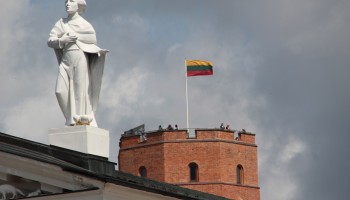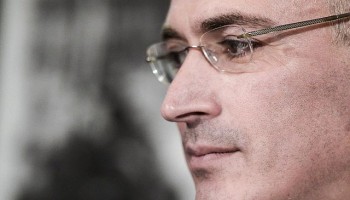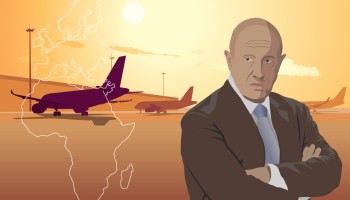Reported by
Russia’s Federal Security Service (FSB) has opened a criminal case against exiled former oil tycoon Mikhail Khodorkovsky and members of the Anti-War Committee of Russia, founded by exiled politicians and activists in February 2022, accusing them of plotting a violent power seizure and organizing a terrorist group.
The move comes about ten days after the Parliamentary Assembly of the Council of Europe (PACE) created a “Platform for Dialogue” with exiled Russian democratic forces—a decision Moscow views as an attempt to legitimize opposition movements abroad.
In a statement Tuesday, the FSB said Mikhail Khodorkovsky—the exiled former head of the dismantled oil giant Yukos—and more than 20 prominent Kremlin critics are under investigation for “violent seizure of power” and “organizing and participating in a terrorist community.”
Once among Russia’s most powerful businessmen, Khodorkovsky fell out of favor with the Kremlin in 2003, when he was charged with fraud and embezzlement linked to Yukos, the oil company he founded to control major Siberian oil fields.
Khodorkovsky himself told OCCRP a few years ago that he fell out of favor when he challenged grand corruption during a meeting of Russian business leaders at the Kremlin in 2003. Soon after, he was arrested, charged and sentenced to nine years in prison. His assets were frozen and the government drove his company into bankruptcy. Pardoned in 2013, he fled Russia and has since lived in exile, continuing to criticize the Kremlin.
Those now named in the case include former Prime Minister Mikhail Kasyanov, chess grandmaster and opposition leader Garry Kasparov, political scientist Ekaterina Schulmann, and veteran dissident Vladimir Kara-Murza, among others.
The FSB alleged that the Anti-War Committee seeks to overthrow Russia’s constitutional order by force. The Russian Prosecutor General’s Office labeled the group “undesirable” in January 2024.
According to the agency, the committee adopted the so-called “Berlin Declaration” in April 2023, calling for the “liquidation of Russia’s current authorities.” It also claimed the group helped create a “platform of Russian democratic forces” within PACE in October 2025—which, the FSB said, Khodorkovsky has presented to Western governments as a “founding assembly for a transitional period” and a democratic alternative to Russia’s government.
The FSB further accused Khodorkovsky and his associates of financing Ukrainian nationalist armed groups designated as terrorist organizations in Russia and of recruiting volunteers to support efforts to seize power by force.
Khodorkovsky dismissed the allegations as politically motivated, saying the Kremlin was reacting to recent European efforts to engage with Russian dissidents.
“The story with PACE is seen by the Kremlin as a big problem,” he wrote on Telegram.
“Hence the new charges about ‘seizing power,’ the lies about ‘recruiting fighters’ and ‘arming the Ukrainian army’—sorry, but no. Humanitarian aid—yes.”
He added that “it’s amusing that the PACE story upset three Russian national agencies at once: the Presidential Administration, the Investigative Committee, and the FSB.”
Kara-Murza, who spent years in prison on treason charges before being released last summer in a major Russia-West prisoner swap, was on Monday placed again on a wanted list by Russia’s Interior Ministry.
The charges against him, according to Russian media, remain unclear, though lawmakers have said authorities plan to pursue terrorism and extremism cases against him and other opposition figures, including Yulia Navalnaya—the widow of Russian opposition leader Alexei Navalny—and another opposition politician, Ilya Yashin, over an anti-war rally in Berlin earlier this year.
Kara-Murza responded with irony, saying he was “diversifying [his] terrorist activities”—joining Yulia Navalnaya and Ilya Yashin “on some days,” and the Anti-War Committee “on others.”
His remark underscored the Kremlin’s widening crackdown on dissidents both at home and abroad as authorities seek to silence critics ahead of next year’s parliamentary elections.






